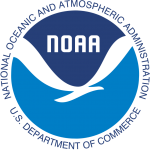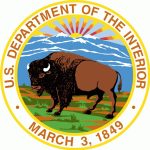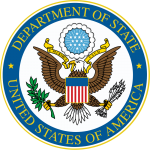REGIONAL COLLABORATION
The Oceans and Fisheries Partnership (USAID Oceans) is a USAID-funded activity, implemented by Tetra Tech. USAID Oceans is a regional collaboration between USAID’s Regional Development Mission for Asia, the Southeast Asian Fisheries Development Center, and the Coral Triangle Initiative on Coral Reefs, Fisheries, and Food Security. This regional collaboration works with a wide range of public and private partners that bring additional expertise and experience to the mission.

The United States Agency for International Development (USAID) Regional Development Mission for Asia (RDMA), located in Bangkok, Thailand, implements programs and forges partnerships with government, civil society, private sector and regional institutions across 24 Asian nations. USAID RDMA’s regional programs address cross-border issues, including environmental issues, which are among the chief impediments to Asia’s long-term development success. Rapid economic growth has led to dramatic increases in the use of natural resources and wrought unprecedented damage on Asia’s forests, fisheries, wildlife and vulnerable ecosystems in response to these threats.
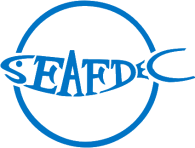
The Southeast Asian Fisheries Development Center (SEAFDEC), is the technical and operational arm for fisheries matters in the region, and is engaged in the ASEAN-SEAFDEC Strategic Partnership (ASSP). ASSP works to enhance cooperation between ASEAN, SEAFDEC, and ASEAN member countries. SEAFDEC and ASEAN member countries recognize USAID Oceans as an official ASSP program. SEAFDEC facilitates regional engagement and supports Activity work streams through the USAID Oceans/SEAFDEC Technical Working Group. SEAFDEC also bring tremendous technical expertise to the USAID Oceans Activity, in support of capacity building activities in the learning and expansion sites. SEAFDEC is working closely with national fisheries agencies on the implementation of the ASEAN Catch Documentation Scheme, which complements USAID Ocean’s regional approach and supports regional fisheries traceability objectives.

The Coral Triangle Initiative on Coral Reefs, Fisheries, and Food Security (CTI-CFF) is a multilateral partnership of six countries (Indonesia, Malaysia, Papua New Guinea, the Philippines, Solomon Islands and Timor-Leste), formed in 2007 to address the urgent threats facing the coastal and marine resources of one of the most biologically diverse and ecologically rich regions on earth. CTI-CFF seeks to sustain the region’s extraordinary marine and coastal resources in the face of climate change and other anthropogenic threats by improving conservation of the Coral Triangle coral reefs and associated ecosystem functions, goods, and services. CTI-CFF has performed extensive work in regional fisheries management planning, and complements USAID Oceans’ objectives to establish enhanced national and regional Sustainable Fisheries Management Plans using an Ecosystem Approach to Fisheries Management.
NATIONAL TECHNICAL WORKING GROUP
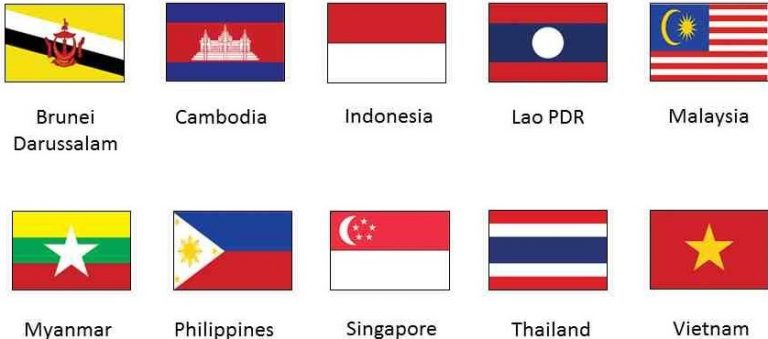
USAID Oceans aims to strengthen the capacity of regional and national governance bodies and institutions. In support of this goal, the USAID Oceans National Technical Working Group (TWG) was established in 2016, and is comprised of government agency representatives appointed from the regional, national, and local levels that mirror the USAID Oceans team structure. The USAID Oceans National TWG is a network and mechanism to facilitate regional collaboration among ASEAN member countries. National TWGs have been established for each ASEAN member country and for SEAFDEC technical leads. Each national team comes together to work collectively to further regional representation and engagement. Technical leads within National TWGs work directly with USAID Oceans technical leads and country staff in the areas of catch documentation and traceability, fisheries management, human welfare, and private sector engagement. Visit Where Oceans Works to learn where National TWGs are found throughout the Southeast Asia region.
IMPLEMENTING PARTNERS
Tetra Tech ARD is the prime contractor for USAID Oceans, and is a leading provider of consulting, engineering, and technical services worldwide. Tetra Tech ARD provides support to USAID on a wide-range of international development programs, using engineering, science, and high-technology solutions to solve the complex problems of the modern environment. Tetra Tech’s approach is based on sound science, stakeholder engagement, capacity building, and innovative technologies and best practices. Tetra Tech has a substantial presence in Asia and extensive experience in the Asia-Pacific region having served as the Program Integrator for two of USAID/RDMA’s groundbreaking regional programs, the US Indian Ocean Tsunami Warning System (IOTWS), and the US CTI Support Program (USCTI).

Resonance harnesses the power of collaboration to enable communities, companies, and governments to drive market-based solutions to global challenges. Resonance has proven experience in partnerships for development, building on their recent successes with TV White Space’s broadband with the USAID Ecosystems Improved for Sustainable Fisheries (ECOFISH) Project. Under USAID Oceans, Resonance has been working to develop public-private partnerships with information and communications technology firms, leading retailers, Southeast Asian seafood processors and fisheries, and the financial sector to support the development of electronic catch documentation and traceability to reduce illegal fishing and improve fisheries management.

Verité is a global non-profit with a mission to ensure that people work under fair and safe conditions. Verité aims to ensure that globalization is made to work for poor and vulnerable populations around the world. As part of the Oceans and Fisheries Partnership, Verité is conducting the program’s Gender Analyses. Analyses will gather information on and document a range of labor conditions and current labor compliance efforts in learning sites, which will be used to inform the design and implementation of CDT system. Verité will also determine potential goals for improved labor conditions, document existing labor compliance efforts by private sector entities, and document the legal and regulatory labor frameworks of target countries relevant to the fishing sector.
TECHNICAL PARTNERS
USAID Oceans works with a wide network of partners who support the advancement of fisheries traceability, enhanced fisheries management, and improved marine biodiversity conservation throughout the Indo-Pacific and globally. Using formal partnership agreements, USAID Oceans collaboratively implements programmatic activities with the following partner organizations:

USAID Oceans and ADM Capital Foundation announced a partnership in January 2017 to explore the development and implementation of a financing vehicle to promote innovation and scalability in seafood traceability. The partnership seeks to combat IUU fishing, promote a fair and ethical seafood supply chain and advance sustainable fisheries and marine biodiversity conservation in Indonesia from 2017-2019. ADM Capital Foundation, ADM Capital and other partners are working to build an innovative finance vehicle for Indonesia, the Tropical Landscape Finance Facility, which offers long-term loans to support projects that lead to improved rural livelihoods and access to energy for off-grid communities.

Conservation International Philippines has worked with the government and local communities to value and protect healthy ecosystems since 1995. Through science, policy and fieldwork, Conservation International (CI) Philippines aims to protect nature, and provide innovative solutions to key environmental issues – such as the loss of mangroves, deforestation, climate change, unsustainable fishing and the illegal wildlife trade. CI Philippines works both on land and sea — from the magnificent mountain range of Mount Mantalingahan in Palawan to the productive Sulu-Sulawesi Seascape — to safeguard the well-being of all Filipinos for generations ahead. In 2019, USAID Oceans and CI Philippines formalized a collaborative effort to assist in progressing the implementation of a sub-regional ecosystem approach to fisheries management (EAFM) plan for the Sulu-Sulawesi Seascape, as approved and endorsed by the Coral Triangle Initiative (CTI) member countries of Indonesia, Malaysia, and the Philippines in 2018. Major priorities under the sub-regional EAFM plan include combating IUU fishing, promoting sustainable fisheries, and conserving marine biodiversity in the Sulu-Sulawesi Seascape. In coordination with the CTI-CFF Regional Secretariat and the CTI EAFM and Seascapes Technical Working Groups, during late 2019 and early 2020 CI Philippines facilitated the implementation of the sub-regional EAFM plan in collaboration with the National CTI Coordinating Committees of Indonesia, Malaysia, and the Philippines, including leading the design, facilitation, and documentation of an implementation workshop between the three countries for the sub-regional EAFM plan and establishment of a sub-regional governance mechanism for the Sulu-Sulawesi Seascape.
FishWise promotes the health and recovery of ocean ecosystems by providing innovative market-based tools to the seafood industry, supporting sustainability through environmentally and socially responsible business practices. For more than fifteen years, FishWise has worked closely with the seafood industry to foster leadership in sustainability. FishWise believes that the seafood industry not only has serious impacts on the health of oceans and the welfare of its workers, but also the potential to make an enormous contribution to the health of our planet and its inhabitants. FishWise implements the Seafood Alliance for Legality and Traceability (SALT) a global community of governments, the seafood industry, and non-governmental organizations working together to share ideas and collaborate on solutions for legal and sustainable seafood, with a particular focus on traceability–the ability to track the movement of seafood through supply chains. SALT is as a public-private partnership between USAID and the Walton Family, Packard, and Moore Foundations. Through its implementation of SALT, FishWise works in partnership with USAID Oceans to bring its partners and ideas together as part of the wider SALT global community, working together to make seafood traceable. SALT facilitates learning events for people to connect in person, and maintains this traceability website to encourage online connections. SALT believes that sharing traceability knowledge virtually and in-person will spark creative solutions. Through SALT, FishWise works in partnership with USAID Oceans to highlight the demonstrated business benefits in using eCDT technologies as well as existing gender inequities within fishery supply chains.
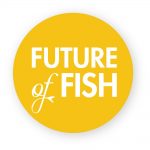
USAID Oceans has partnered with Future of Fish to leverage its existing collaborations with traceability technology vendors, seafood supply chain actors, and NGOs. Future of Fish is working with these stakeholders to build the business case and supporting infrastructure needed for scalable full-chain traceability. Future of Fish is a nonprofit systems change incubator that works with entrepreneurs, industry players, and investors to create business solutions to ocean challenges. Future of Fish’s goal is to end overfishing by building strategic, collective impact through a powerful combination of analytics and design.
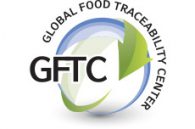
USAID Oceans has formed a partnership with the Institute of Food Technologists (IFT) Global Food Technology Center (GFTC) to leverage best practices and knowledge of food and seafood traceability standards from around the world to ensure the USAID Oceans CDT system is aligned with emerging traceability requirements in key export markets. GFTC assists the global food industry to trace products through the supply chain to improve food safety, diminish risk, avert devastating health consequences, and prevent economic loss to the food system. GFTC generates knowledge that addresses research gaps and delivers applied research, objective advice, and practical expertise about global food product traceability and data collaboration for private benefit and public good.

The Global Dialogue on Seafood Traceability (GDST) is an international, business-to-business platform established to advance a unified framework for interoperable seafood traceability practices. The GDST brings together a broad spectrum of seafood industry stakeholders from across different parts of the supply chain, as well as relevant civil society experts from diverse regions.

USAID Oceans and Inmarsat Global Limited (Inmarsat) launched their partnership in August 2017 to help commercial fishing crews promote sustainable fishing in Southeast Asia. By making use of enhanced communication technology, the partnership will advance catch documentation and traceability (CDT) to promote legal, reported and regulated fishing. USAID Oceans will leverage Inmarsat’s expertise to improve communications for fishing vessels in the region. Crew members on medium and large vessels will integrate existing monitoring systems and CDT data with Inmarsat’s Fleet One and IsatData Pro technology, a global two-way messaging service for tracking and monitoring ports and vessels. USAID Oceans will pilot this technology in Bitung, Indonesia, and Songkhla, Thailand, where the project has undertaken CDT system development and testing. Successful pilot tests demonstrating effective communications between vessels and ports will enable further CDT system development in the region. Inmarsat is a leading provider of global mobile satellite communications services that has been providing reliable voice and high-speed data communications to governments, enterprises and other organizations since 1979.

USAID Oceans and the International Pole and Line Foundation (IPNLF) announced their partnership in May 2017, designed to develop and implement a financially sustainable CDT system in Indonesia’s coastal tuna fisheries, that will integrate with existing government and industry systems. IPNLF works to develop, support and promote socially and environmentally responsible pole-and-line and handline tuna fisheries around the world. IPNLF’s ambition is to contribute to thriving coastal fisheries, including the people, communities, businesses and seas connected with them. Through the partnership, IPNLF will engage its Members and networks to build awareness and support in key export markets for implementation of the CDT system and sustainable fisheries management in Indonesia. USAID Oceans and IPNLF are also working closely to develop an Indonesian Coastal Tuna Sustainability Alliance that will support the coordination and scaling of various traceability and sustainable fisheries management initiatives in Indonesia.
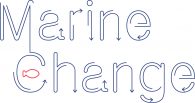
Marine Change specializes in creating innovative business models and financing structures in support of sustainable fisheries and ecotourism. Our approach focuses on aligning the vision and incentives of industry, community, and civil society to ensure the sustainability of both incomes and the environment. In support of promoting sustainable fisheries, Marine Change works on the business challenges associated with fisheries improvement projects, Marine Stewardship Council and Fair Trade certification, ghost gear mitigation, vessel monitoring system (VMS) technologies and platforms, traceability (including blockchain), and the economic impacts of harvest control rules throughout Southeast Asia and the Western Pacific. Marine Change also builds financial projections, assists with capital raises, and develops branding strategies for sustainable fishing and fish trading operations. In support of USAID Oceans, Marine Change provided technical partnership from 2018 to 2020, including conducting a two-part Return on Investment (ROI) study relating to the testing of electronic catch documentation and traceability (eCDT) technologies at the USAID Oceans learning sites in the Philippines and Indonesia. The first part of this study focused on the collection, exchange, verification, and privacy processes/effectiveness of key data elements (KDEs) under the eCDT systems, as well as how the KDEs relate to government eCDT system needs and compliance with U.S. importing regulations under the Seafood Import Monitoring Program (SIMP). The second part of this Marine Change study analyzed the ROI for implementing eCDT solutions at both learning sites.

The Centre for Marinelife Conservation and Community Development (MCD) is a Vietnamese non-governmental organization with the mission to promote active cooperation between relevant stakeholders in implementing initiatives that integrate local knowledge and international experience in order to better manage coastal ecosystems and improve coastal communities’ living conditions, contributing to sustainable development of Vietnam’s coastal zone. MCD cooperates closely with the Vietnam Nation Department of Fisheries (DFish) and various coastal provinces to implement and promote sustainable fisheries collaborative management, improve fisher and fishing community livelihoods, and contribute technical support and input into coastal and marine policy in Vietnam, including National Fisheries Legislation. Taking into account the priority needs of Vietnam coastal and marine resource management and missions and technical capacity of governmental and non-governmental stakeholders, a partnership between USAID Oceans and MCD Vietnam was established in 2019 to collaboratively conduct activities that support DFish, the Provincial Government of Binh Dinh, local coastal communities and fishers from Binh Dinh Province, and private sector partners in their collaborative application and initial testing of available electronic catch documentation and traceability (eCDT) technologies and development of national guidelines to address IUU fishing, promote fisheries sustainability and traceability, and enhance marine biodiversity conservation in Vietnam.

USAID Oceans and Yayasan Masyarakat dan Perikanan Indonesia’s (MDPI) partnership enhances regional coordination between national and provincial governments, with a focus on fair labor and gender equity in fisheries management, and promote overall sustainability. The partnership supports USAID Oceans’ CDT System development work, which will help small- and large-scale fisheries promote fair and ethical seafood supply chains and meet regional and international import standards. MDPI has extensive expertise in traceability and fisheries sustainability in Indonesia, and works closely with industry partners such as PT Blue Ocean Grace International, PT Nutrindo and Anova Technical Services, LLC. These partners have signed on to pilot the new CDT technology, signaling a commitment to combatting IUU fishing.

USAID Oceans and Monterey Bay Aquarium Seafood Watch® launched a partnership to improve the traceability of seafood products entering the North American market and increase sustainable fisheries management in the Asia-Pacific region. Seafood Watch® empowers consumers and businesses to choose seafood that is fished or farmed using responsible methods that protect sea life and habitats, now and for future generations. Seafood Watch is the leading North American seafood ratings program whose science-based sustainability standards encourage environmentally sustainable practices. The program assesses over 80% of seafood by volume consumed in the US market, and helps major businesses and individual consumers make choices that support a healthy, sustainable ocean. Its partnerships with major seafood buyers create market incentives for well-managed fisheries to maintain strong regulations, traceability, and high environmental performance.

Thai Union is the one of the world’s leading seafood companies with annual sales exceeding THB 134 billion ($3.8 billion). Sustainability is of critical importance for Thai Union, and as a leading seafood company, Thai Union is determined to drive positive change throughout the industry. USAID Oceans and Thai Union are partnering to implement digital catch documentation and traceability (CDT) systems in tuna fisheries in Thailand and Indonesia, with future expansion to other countries and fisheries in the Asia-Pacific region. The partnership will work to improve fisheries management practices; form partnerships with governments and other industry stakeholders to improve transparency in seafood supply chains; and explore linking additional features to CDT systems including labor data and crew communications to promote responsible and equitable labor practices in the seafood sector.

Founded in 2013, Trinity Roots is a solution provider company focusing on Enterprise Resource Planning (ERP) based in Bangkok, Thailand. Trinity Roots has experience implementing ERP solutions in various business sectors, including retail, trade, manufacturing, educational services, and the service and tourism industry. Since 2015, Trinity Roots has been working to support the Royal Thai Navy and the Thailand Department of Fisheries (DoF) to address illegal, unreported, and unregulated (IUU) fishing, including implementing projects including Thailand’s port-in port-out (PIPO) system for Thai-flagged fishing vessels, support to DoF inspection and risk assessment system, and testing of an electronic fishing license and fishing labor registration systems. During 2019 and 2020, USAID Oceans and Trinity Roots worked collaboratively to address shared objectives of combating IUU fishing in the Gulf of Thailand and throughout Southeast Asian waters, enhance fisheries management, and address human welfare concerns through the use of available eCDT technologies. This partnership included assessing the potential application of available eCDT technology solutions developed under USAID Oceans within Thailand coastal waters for small-scale (artisanal) fishers and/or small to medium commercial fishing vessels.
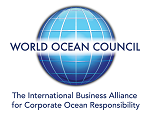
The World Ocean Council (WOC) is a USAID Oceans partner, working to engage the private sector, including the investment community in support of the CDT system and Activity objectives. WOC will bring together the ocean business community to develop leadership, collaboration, and investment to bolster project support and long term sustainability. WOC is a global, cross-sectoral ocean industry leadership alliance committed to “Corporate Ocean Responsibility”, developed by and for the private sector, with a unique and multi-sectoral approach to address cross-cutting issues affecting ocean sustainable development, science and stewardship of the seas. WOC brings together the multi-sector Ocean Business Community to catalyze global leadership and collaboration in ocean sustainable development, science and stewardship.
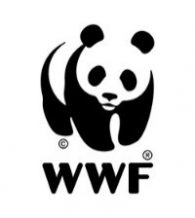
The mission of the the World Wide Fund for Nature Philippines (WWF-Philippines) is to stop and eventually reverse the accelerating degradation of the Philippine environment, to build a future where Filipinos live in harmony with nature. WWF-Philippines works to improve Filipino lives by crafting solutions to climate change, providing sustainable livelihood programs, and conserving the country’s richest marine and land habitats. Since 1997, WWF-Philippines (also known as the Kabang Kalikasan ng Pilipinas Foundation Inc., or KKPFI) has been working as the 26th national organization of the global WWF network, successfully implementing conservation projects to help protect some of the most biologically-significant ecosystems in Asia. In 2019, WWF-Philippines and USAID Oceans formed a partnership to expand the use of municipal electronic catch documentation and traceability (eCDT) technologies beyond the USAID Oceans Philippines Learning Site in General Santos City into other regions of the country where WWF-Philippines is currently working closely with municipal fisherfolks who are interested in testing eCDT technologies within their own fishery operations and Local Government Units (LGUs). This partnership was formed with the shared goals of USAID Oceans and WWF-Philippines to combat IUU fishing, promote sustainable fisheries, and conserve marine biodiversity through the demonstration and expansion of eCDT technologies during 2019 and 2020. WWF-Philippines successfully led the adaptation and application of available eCDT technologies piloted with municipal and small-scale fishers in General Santos City at WWF sites in Mindoro Strait and Lagonoy Gulf of the Occidental Mindoro Province and the Bicol Region of the Central Philippines.
TECHNICAL ADVISORY GROUP
Technical Advisors are also engaged to inform and contribute to the design of programmatic strategies and activities through the USAID Oceans Technical Advisory Group (TAG). USAID Oceans TAG members include FishWise, The Food and Agriculture Organization of the United Nations (FAO), The Government of Sweden, the Government of Japan through the Japanese Trust Fund (JTF), the International Seafood Sustainability Foundation, the Marine Stewardship Council, Yayasan Masyarakat dan Perikanan Indonesia (MDPI).
COOPERATING U.S. GOVERNMENT PARTNERS
USAID Oceans coordinates closely with U.S. Government agencies that work in Southeast Asia to enhance marine ecosystems and combat illegal and unsustainable fishing practices. Key agencies include:





